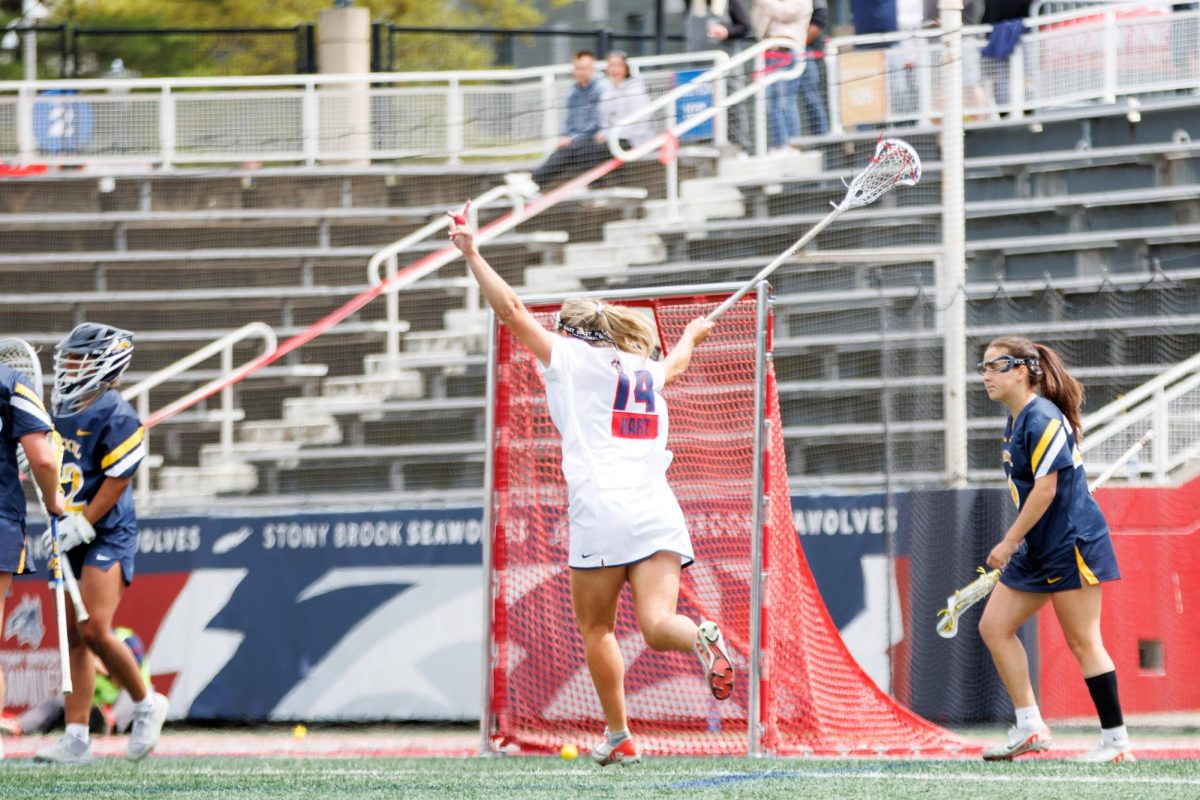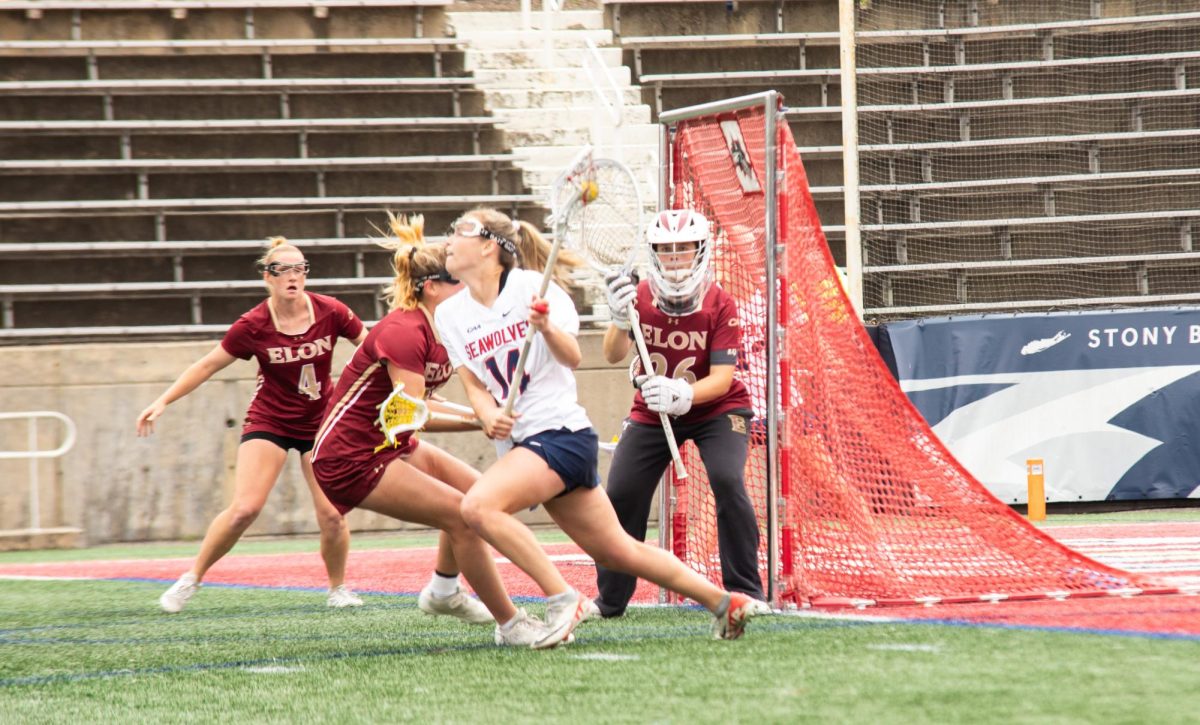 Almost every seat in the Wang Center Theatre was filled. The audience anxiously awaited the five Taiko performers. Then, suddenly, they came to the stage, hands in sync, and took a beginning bow. Sunita S. Mukhi, Ph.D., the director of Asian-American programs at the Wang Center, introduced the musicians and the main performer, Kenny Endo.
Almost every seat in the Wang Center Theatre was filled. The audience anxiously awaited the five Taiko performers. Then, suddenly, they came to the stage, hands in sync, and took a beginning bow. Sunita S. Mukhi, Ph.D., the director of Asian-American programs at the Wang Center, introduced the musicians and the main performer, Kenny Endo.
The phrase “Taiko drumming” refers to a form of Japanese drumming that, in recent years, has earned recognition as an art form. The word “Taiko” itself means “drum” in Japanese.
According to Mukhi, there were about 200 people in the audience, 100 of whom were students.
“Tonight, we will watch him drum up a culture,” Mukhi said. “I can hear the quiver of excitement.”
And a moment later, Kenny Endo began to drum.
He was hypnotic. The chit-chat that had thus far existed in the auditorium was instantly silenced. All that existed were the vibrating sounds powerfully echoing throughout the room.
Endo has been a Taiko player for 35 years. He has recorded seven CDs of original Taiko composition, worked on James Cameron’s “Avatar” and has traveled around the world learning different melodies and rhythms. Endo started learning Taiko in his third year of college. “It was fairly late,” he admits.
But he does not perform alone.
On stage, he was joined by Hitoshi Hamada, Kaoru Watanabe, Tadayoshi Yasuda and Shokao Hikage. Endo and his team were dressed traditionally in long Japanese robes of varying colors. Seven years ago, Endo played at the Wang Center for the first time. On Saturday, Nov. 13, the sounds of Taiko set dominated the theatre once more.
Upon finishing his first piece, “Clarity,” Endo did not stop for applause – he kept playing. His group members musically bobbed their heads to the tunes. The music was overwhelming. The audience was drowned in the wave of sound.
Finally, after playing for at least a quarter of an hour without a break, Endo put his arms down. He has mountainous muscles. His arms were always raised, as he was forever drumming.
“It’s so wonderful to see the Wang Center thriving,” Endo said. He then went on to say, “I believe that all musicians need to have swing, soul and sincerity.”
He then said that he would play a song with that very same title, and credits American singer Bobby McFerrin for first using that saying. Endo called it a “cultural jazz” piece. After this, a spotlight appeared on a massive drum called an odaiko, resting in the center of the stage. The odaiko dominated the room. It is made of dark brown wood with sunlight orange tints. The base looks soft. Endo grazes his hands over it, smoothing it out gently.
Endo said that the name of the song is “Sunflower,” and explains that though it is a beautiful flower, it is also temporary and elusive. He then began to play the enticing song. Endo yelled at the drum as though he was angry. His rhythm was intense. One almost expected his drumming sticks to fly out of his hands. A picture could not capture their speed.
Shortly, after a brief intermission, the sound of raindrops filled the auditorium. Endo dedicated this piece “AME (Tears of the Earth),” to the victims of aggression in today’s world, and specifically to the victims of Sept. 11.
Three songs later, the performance was finished, and the audience was at its feet, applauding louder than all the drum beats combined that night. The group received a standing ovation.
Mukhi, who had not seen Mr. Endo in seven years, said she missed what he can do to a crowd.
“He is a master musician, a wonderful performer and a brilliant teacher,” she says. “He has seamless synchronism.”
Helen Cooper, a retired English teacher from Stony Brook, said she was “blown away.” Taking a long look around the auditorium, she said, “I really loved it all.”
Michael Clanton, a 20-year-old liberal arts major, said he had never seen anything like this performance before. “It was absolutely incredible.”
Next semester, Mukhi is planning an exhibition called “Erasing Borders,” which will be about Indian culture and Afghan poetry and dance.
After the performance, at a question and answer session that Endo and his band spontaneously agreed to, a little boy from the audience asked Endo if he liked music as a child.
Endo chuckled and replied, “Why, yes. I loved it. Do you like it?”
“Sort of,” the boy answered.
The crowd burst into laughter.
“Don’t worry, it’s never too late to fall in love with music,” Endo said.
And just as Endo began to ramble about the importance of music, Watanabe interrupted.
“Let’s just get out of here and grab a beer,” Watanabe said invitingly to the crowd. “Then we can talk music.”
Taiko expert or not, that’s something many college students can relate to.












